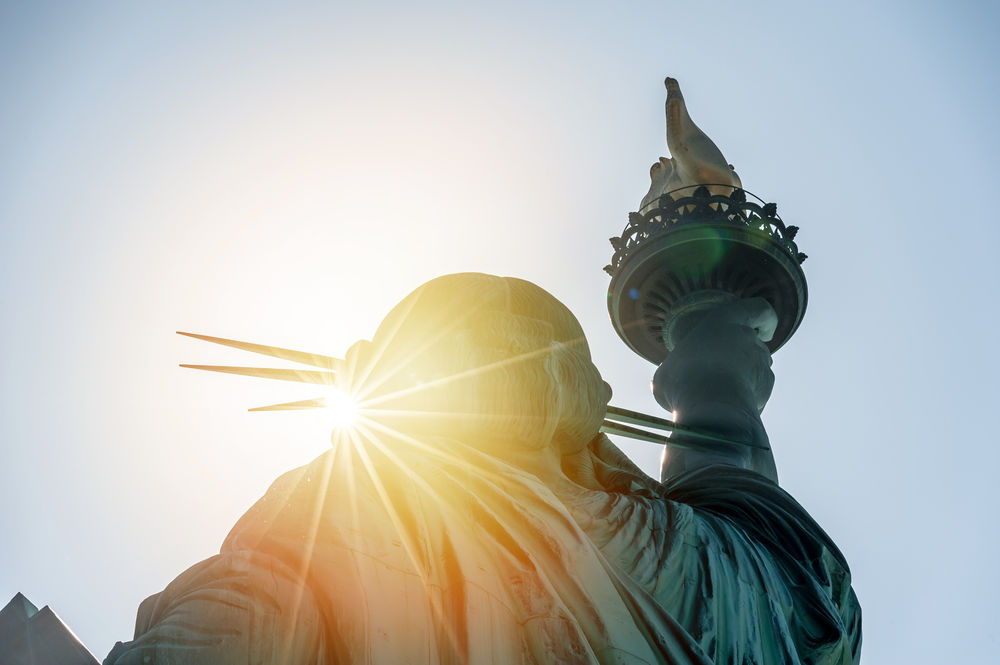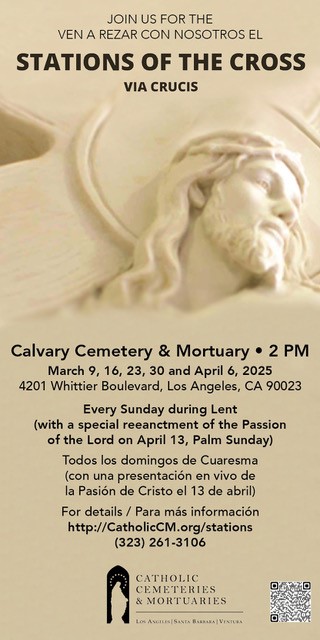Editor’s note: On March 8, Archbishop Gomez addressed a gathering of Catholics and other leaders in politics and business at a symposium hosted by the Napa Institute in Washington, D.C. The text below is adapted from his address. To read his full talk, “Where Do We Go From Here? Why We Cannot Wait for Immigration Reform,” visit his website: ArchbishopGomez.com.
It is long past time for our nation to address the issue of the 11 million undocumented persons living within our borders. I want to propose a solution today.
By our inaction and indifference over more than a decade, we have created a quiet human rights tragedy.
A vast underclass has grown up at the margins of our society. We just seem to accept it. Millions of men and women living as our perpetual servants — working for low wages in our restaurants and fields, in our factories, gardens, homes and hotels.
Right now the only thing we have resembling a national immigration “policy” — is focused on deporting these people. And we have deported nearly 3 million in the last decade.
The sad truth? The majority of those we are deporting are not violent criminals. Up to one-quarter are mothers and fathers that our government is seizing and removing from ordinary households.
Nobody disputes that we should be deporting violent criminals. But what is the public policy purpose that is served by taking away some little girl’s dad or some little boy’s mom?
Most of the 11 million have been living in this country for five years or more. Two-thirds have been here for at least a decade. Almost half are living in homes with a spouse and children.
The means a deportation-centered policy — without reforming the underlying immigration system — will only lead to punishing children and breaking up families.
As a pastor, I do not believe it is an acceptable moral response to say, “It serves them right. This is what they get for breaking our laws.”
They are still people, still children of God, no matter what they did wrong.
Jesus says we are judged by our love and by our mercy. He said, “I was a stranger,” an immigrant. He did not distinguish between legal and illegal.
So how do we move forward?
These 11 million undocumented people did not just arrive overnight. It happened over the last 20 years. And it happened because our government, at every level, failed to enforce our immigration laws.
This is a difficult truth but we have to accept it. We are indeed a nation of laws. But for many years, government and law enforcement looked the other way because American businesses demand “cheap” labor.
That does not justify people breaking these laws. It does explain how things got this way.
I believe strongly in personal responsibility and accountability.
But I have to question why the only ones we are punishing now are the undocumented workers themselves — ordinary parents who came here seeking a better life for their children.
Why aren’t we punishing the businesses who hired them, or the government officials who didn’t enforce our laws? It does not seem right to me.
And what about us? Don’t we share some responsibility? We “benefit” every day from an economy built on undocumented labor.
The way I see it as a pastor — there is plenty of blame to go around. That means there is plenty of opportunity to show mercy.
Mercy is not the denial of justice. Mercy is the quality by which we carry out our justice. Mercy is the way we can move forward.
I am not proposing we “forgive and forget.” If the rule of law is to be respected, there need to be consequences when laws are broken.
Right now, we have made deportation a kind of “mandatory sentence” for anyone caught without proper papers. We are not interested in the reasons or considering “hard cases.”
Illegal immigration may be the only crime for which we do not tolerate plea bargains or lesser sentences. That does not seem right, either.
One simple proposal: Why don’t we require the undocumented to pay a small fine or do community service? Why not ask them to demonstrate they are holding a job, paying taxes and learning English?
That would be fair and proportionate punishment to me. But in addition to the punishment, we need to give these people some certainty about their status living in this country.
Most of the 11 million who are parents have children who are U.S. citizens. They should be able to raise their children in peace, without the fear that one day we will change our minds and deport them. So we need to establish some way for them to “normalize” their status. Personally, I believe we should give them a chance to one day become citizens.
There is a lot of fear and frustration in the country today. I understand why some of it is directed at unknown people who have entered in through a broken system.
But there is a balance of law and love we can strike here.
This week, let us keep each other in prayer. And let us pray for our brothers and sisters who are refugees and those who are undocumented.
And let us offer special prayers this week for our leaders.
May Our Blessed Mother Mary guide them to find a way forward on the immigration reform that is so crucial to our families and for our country.
You can follow Archbishop Gomez daily via Facebook, Twitter and Instagram.

